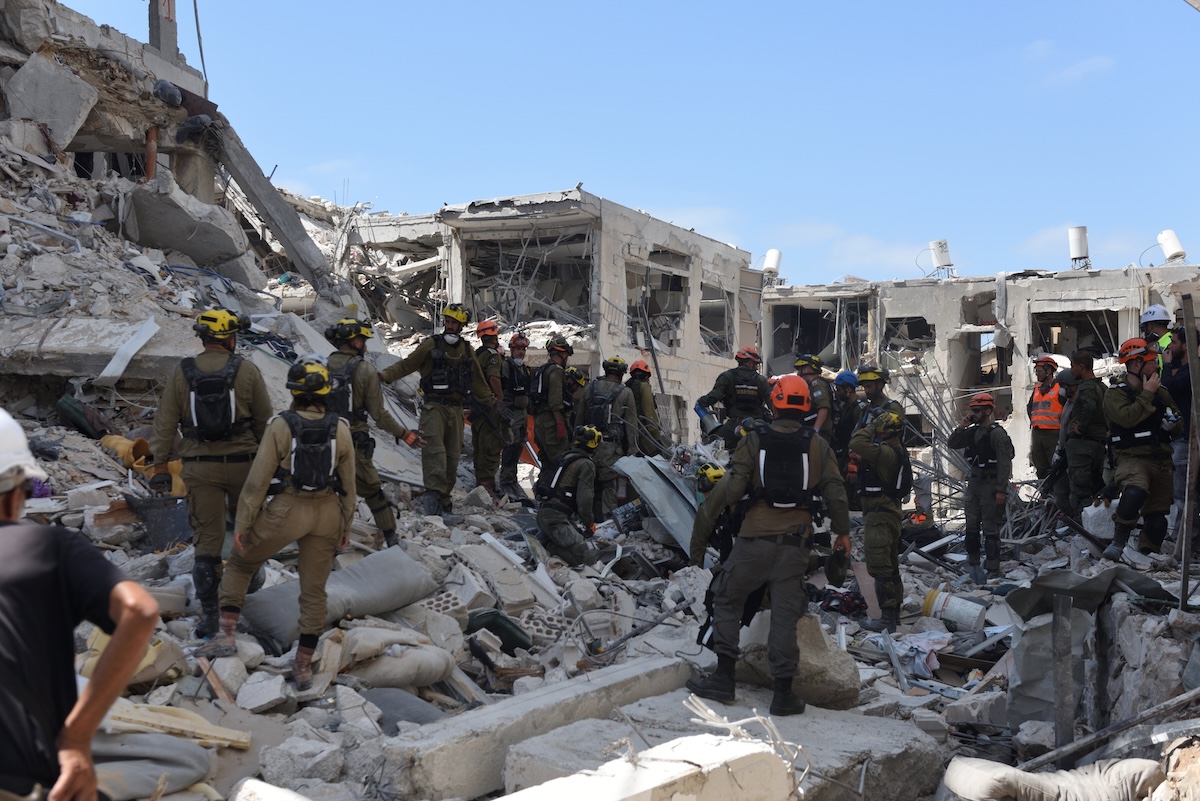Iran war reportedly costs Israel almost 1 billion dollars per da

The Brig. Gen. (res.) Re’em Aminach a former defense official, has estimated that the ongoing war with Iran costs Israel around $725 million per day. He believes that the amount is roughly evenly split between the Israeli military’s offensive and defensive operations.
“These are direct costs only,” Aminach assessed who previously led the Defense Ministry’s Budget Department and the IDF’s economic division. He further believes that the true cost for the Israeli economy will be significantly higher.
“The indirect costs – including impact on gross domestic product – cannot be measured at this stage.”
Aminach’s assessment is based on the first two days of war with Iran, which cost Israel around 5.5 billion shekels ($1.45 billion). However, the amount excludes the costs for repairing the growing material damages in Israeli cities caused by the ongoing Iranian ballistic missile attacks. Israeli officials have estimated that some 90% of the Iranian missiles are intercepted by the Jewish state’s advanced aerial defense systems. However the 5-10 % Iranian missiles that passed through Israel’s defenses, have caused significant material damage in residential areas and killed a growing number of Israeli civilians.

There is a wide consensus among senior Israeli political and military officials that Israel has no choice but to dismantle the nuclear and ballistic missile threat from the Iranian regime that openly calls for the Jewish state’s destruction.
However, there are at the same time concerns that the growing war expenses will further burden the already strained Israeli economy.
In June 2024, Bank of Israel Governor Amir Yaron estimated that the Gaza War would cost the Israeli economy some $67 billion in military and civilian costs during the period 2023 to 2025. Yaron suggested at the time that the Israeli government should balance defense needs with budgetary discipline.
“The government needs to make sure that it makes the right balances and budget adjustments in light of growing permanent security expenses,” Yaron said.
However, since then, Israel’s military expenditures have increased significantly with the previous military offensive against the Iranian-backed Lebanese proxy Hezbollah and now against the Islamic Republic of Iran.
The Finance Ministry in Jerusalem has previously set a ceiling of 4.9% of GDP for the current fiscal year, which corresponds to approximately $27.6 billion. However, this financial goal was set prior to the costly and ongoing Iran war, which is expected to lead to a widening deficit.
The ongoing multi-front war against Iran and its proxies is by far the most expensive war in modern Israeli history. This has resulted in growing pressure on the Israeli economy.
However, the economy has proven to be resilient amid very challenging times. In February, the Israeli economy showed signs of recovery during the internationally-brokered ceasefire between Israel and the terrorist organization Hamas.
Natanel Haiman, head of the Economics Division of the Manufacturers' Association of Israel, articulated at the time growing optimism about the Israeli economy’s ability to bounce back.
“Consumption is rising. Between September and November 2024, there was a 10.6% increase in industrial product purchases and a 4.6% rise in total credit card transactions. This reflects renewed consumer and business confidence,” Haiman stated.

The All Israel News Staff is a team of journalists in Israel.













